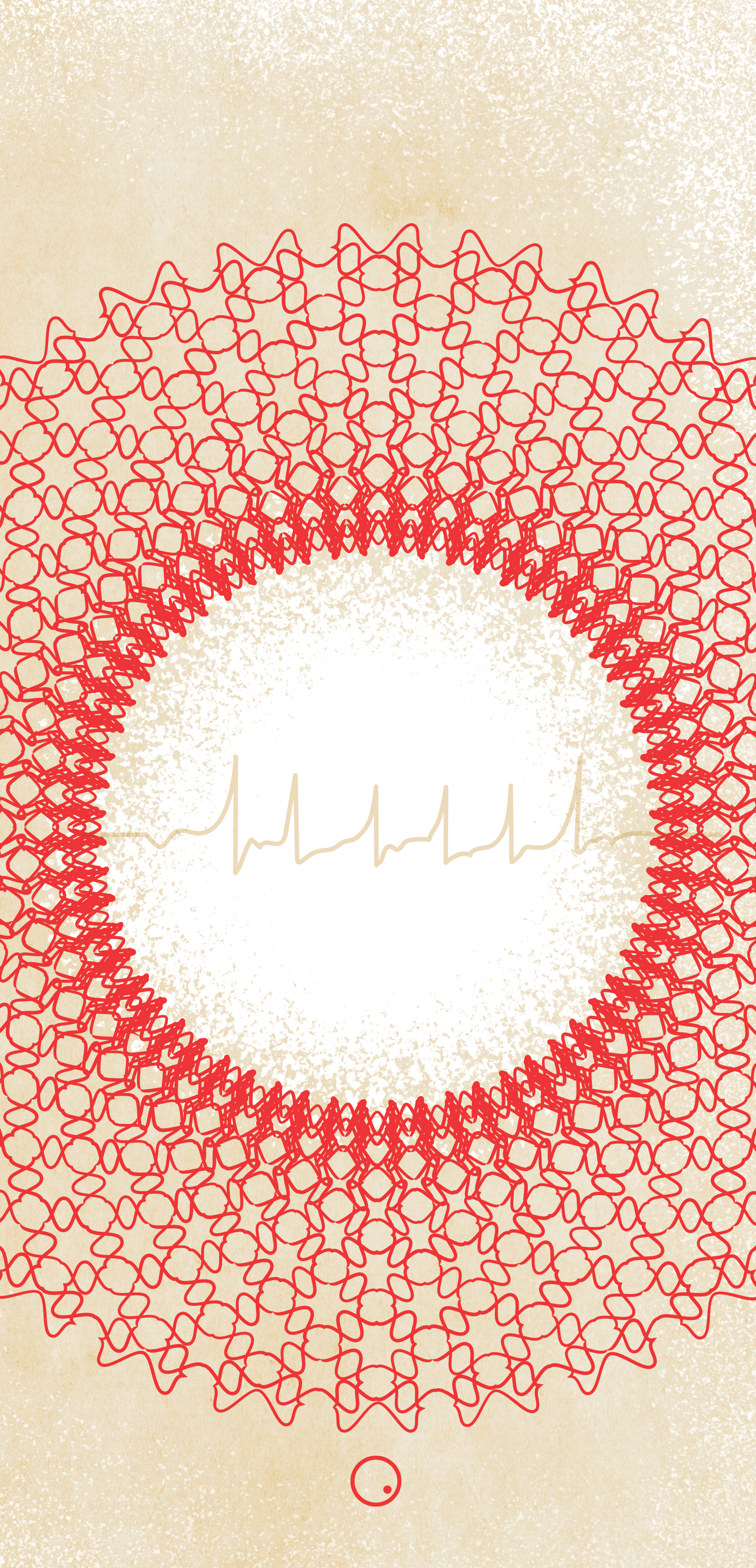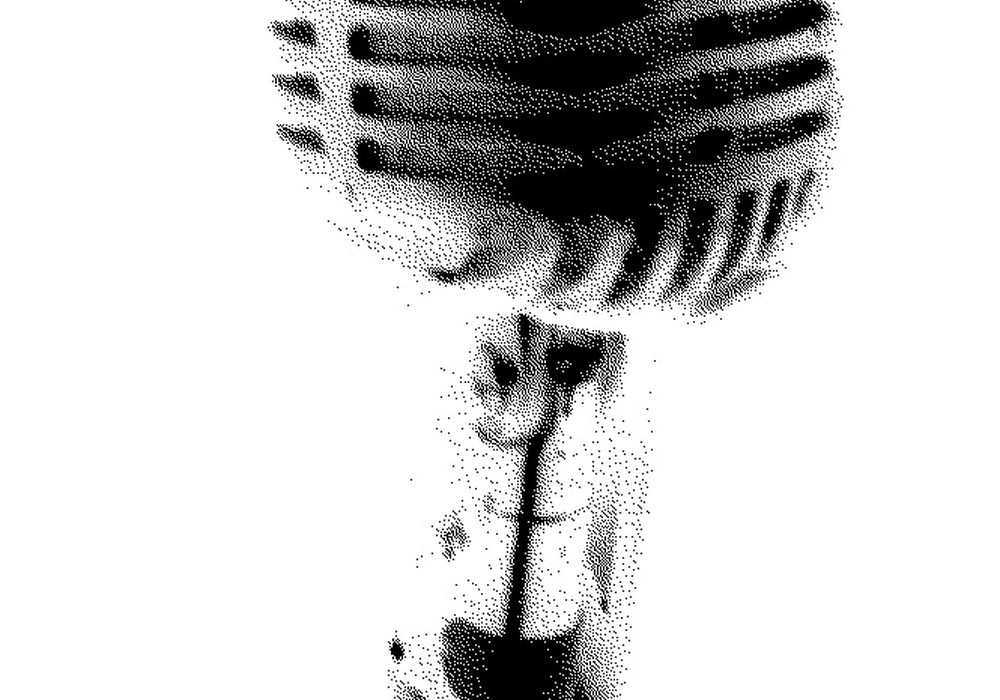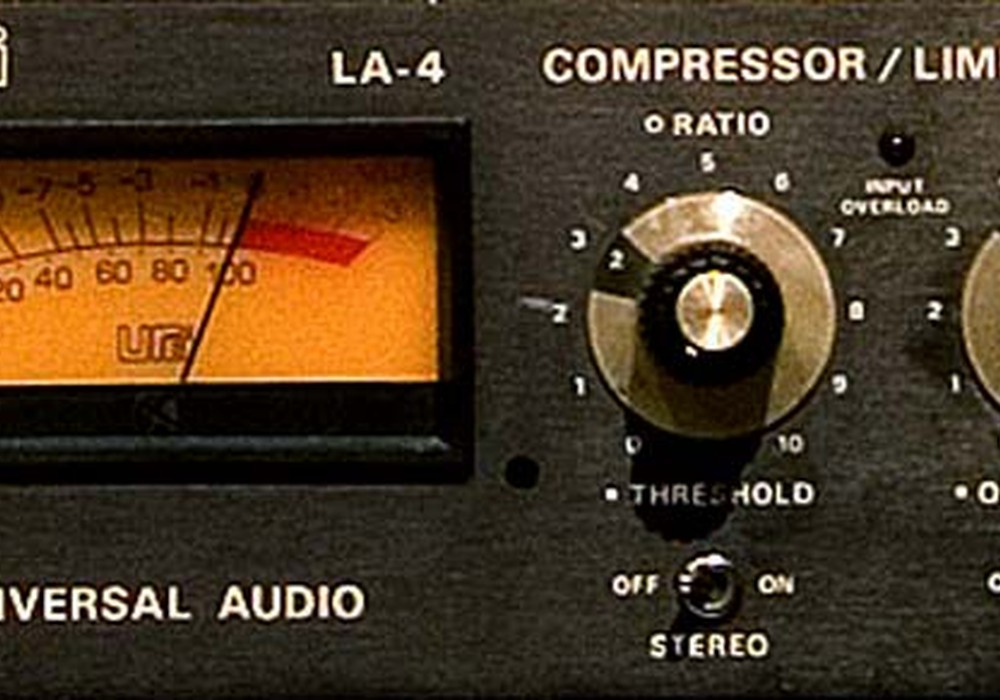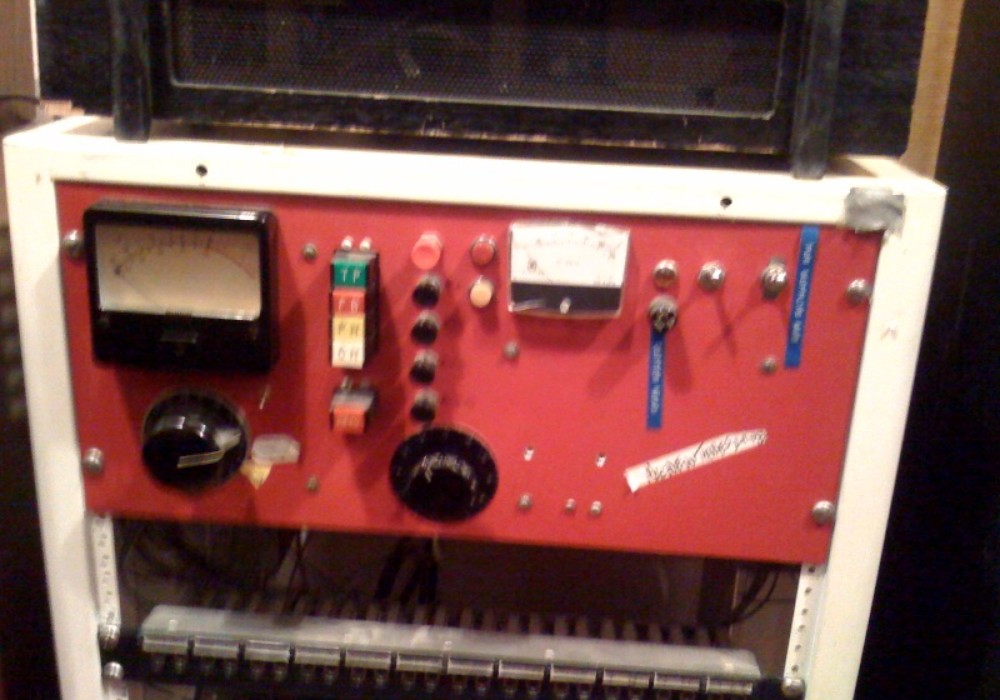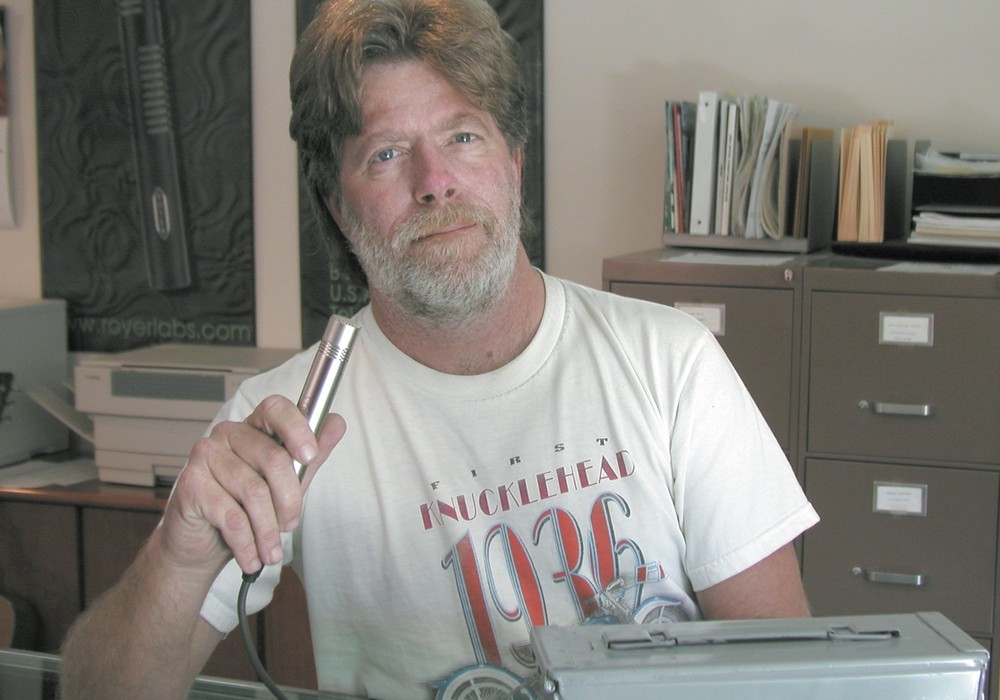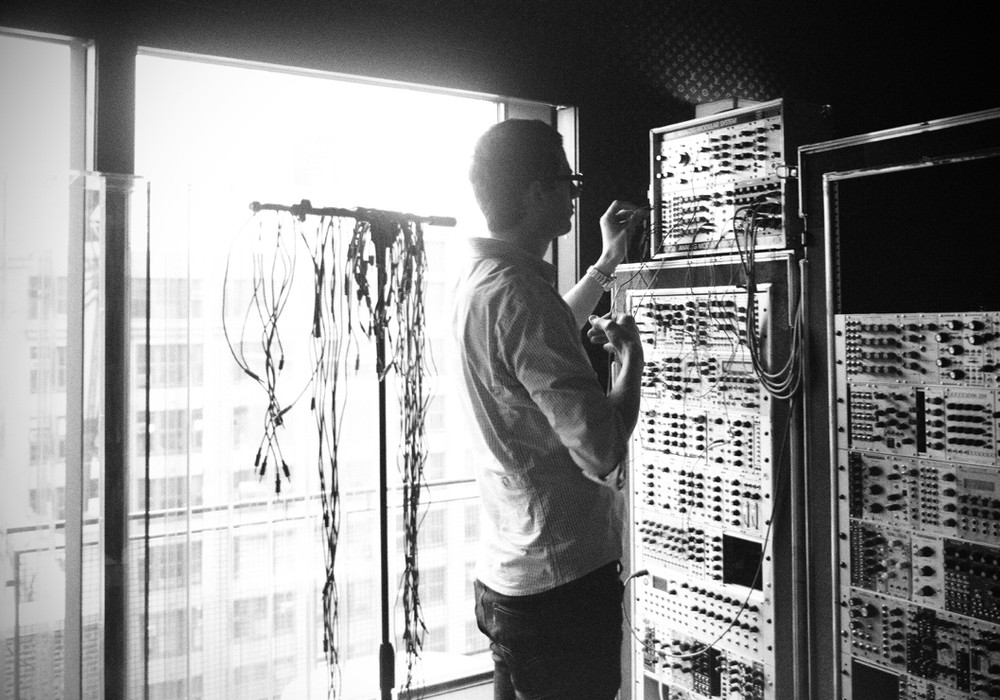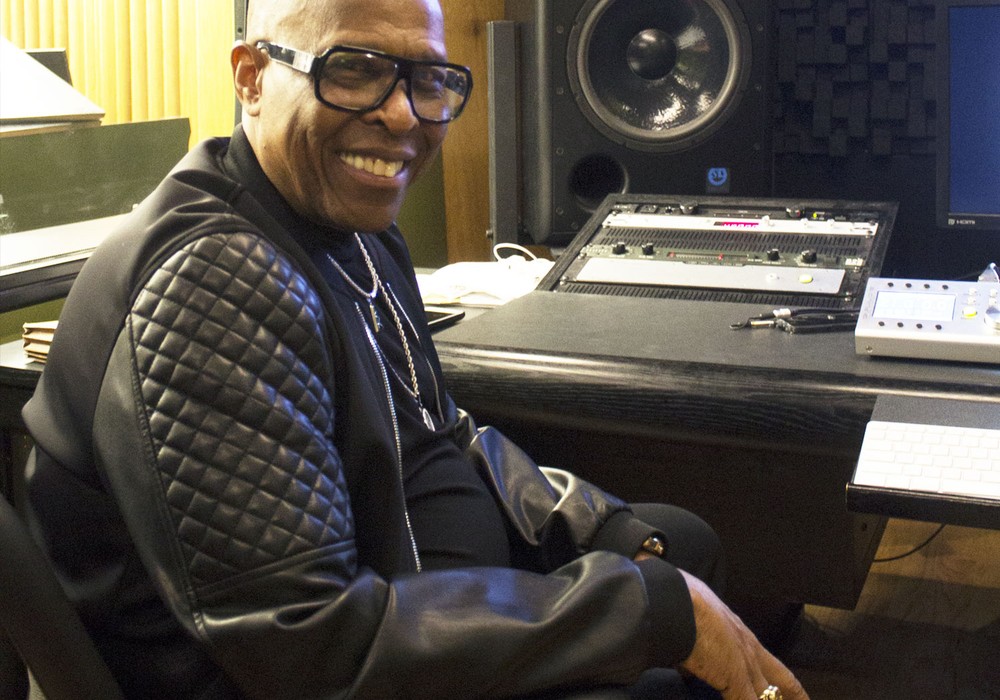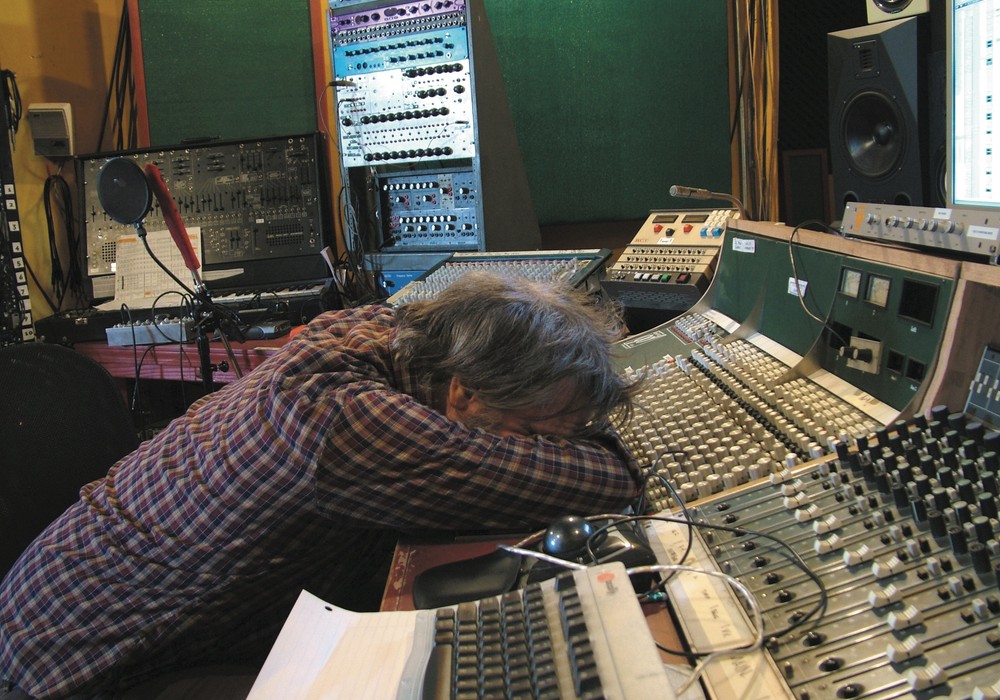I first discovered The Wipers in a basement record shop in Southeast Portland. I picked up Silver Sail and was blown away by the sonic quality. I quickly found myself buying all The Wipers' albums I could find on any format; vinyl, cassette, and yes, even CD. But it didn't stop there. I soon found myself researching the band's past, but the more I learned the more mysterious The Wipers and Greg Sage became. Then I hit a brick wall. The Herd was the latest Wipers' album released and from what I heard maybe the final album. Had I known that this was almost the norm following each release of a Wipers' album, it wouldn't have mattered. But I didn't know that then, so I turned to the albums I had and studied them intently. The Wipers have an unmistakable "sound" that is unique solely to them. All their albums retain this "sound" yet none of their albums sound alike. It was this concept that nearly drove me mad on many occasions and ultimately led to this interview.
How did you first get into recording? What initially spawned you?
I used to have a professional record cutting machine. I think it was fifth or sixth grade. My dad used to work in broadcast and I guess all the radio stations used to use these professional lathes for cutting commercials. Then they went to tape cartridges or something; so there was a big surplus of these. My dad happened to know somebody at the TV station he worked at and they had a lathe just sitting in a room.taking up space. So I got it for like a hundred bucks.It had a Grampion Head and everything else; including a microscope. So I started cutting back then. You could find blank red lacquers at Goodwill and things like that for a nickel a piece because there was a big surplus of that stuff. Cutting needles and everything else, just because there were a lot of home cutting machines. I would cut stuff off the radio for kids at school. I spent a lot of time looking at the grooves through the microscope; inspecting my work. It got me kinda interested in playing music. Basically that's where it started for me musically. As far as recording goes,. it just kinda carried over from cutting records.
Did you graduate to a four track?
Yeah. I think the first tape machine I had was a four track Tascam and a small eight channel mixing board.
Then it just kinda took off?
Well yeah, once I started making records I was just in the habit of recording my own stuff so it just slowly built up over the years.
What was the first band you recorded besides yourself or The Wipers?
The first band, oh man there's been so many. I couldn't tell you.
Did you ever have a job at an outside studio?
I tried to when I was sixteen. It was like the major studio in Portland, I forget what it was called.... NWI, I think, where "Louie, Louie" and stuff was cut at. I almost got a job there, but I lied about my age. Once they found out about that, it was like "Um, sorry kid you have to be eighteen." I never worked for any other studio. I did freelance stuff.
So bands would just hear what you've done and ask if you could help them out?
Yeah, in the early days I used to record a lot of the local bands.
I've read that The Wipers' "sound" was due to the VTDI (Vacuum Tube Direct) preamps and the technology that you're making yourself. How did you get into that and when did you start building your own equipment?
It would have been around '77 or something. Once I started making records I was always extremely poor; we never got paid from any of our record labels, or from record sales. So it became apparent that it was really difficult for me to rent equipment, from friends and stuff. Renting a house or whatever. It all added up. I had always worked with tube equipment ever since I had started cutting records, and I've just always noticed that tubes have a specific sound to them. This was back in the day where people would give me a lot of crap. People would laugh when I talked about vacuum tubes because solid state was the only thing out there. Even professionals, other studios, and engineers would just laugh and call me prehistoric. Because I saw value in vacuum tubes. I just started learning all that I could about it, it was kind of a lost art form during the 70s. Tubes were basically cast out. Even the old equipment that would be revered these days, people would laugh at. I bought a pair of Telefunken ELM 2500s for $300 in pristine shape from a studio. The studio just went out and bought all new shiny Neumanns. Stuff like the Telefunkens was just considered junk. It wasn't until the later mid-80s that people started realizing that new isn't always better. I never had money to buy equipment, so I just started teaching myself as much as I could about electronics. It was a hard field because you could hardly find information on it and no one I met knew anything about vacuum tubes. The only electronic people I knew were just strictly solid state. So, I just started experimenting, I would tear apart equipment that I liked the sound of and I would study it's circuitry. I started breadboarding circuits that I found that I thought sounded good, then I started experimenting with different topologies. Which, in those days, were just unheard of like ground plaining, zero point grounds, and dual match grounds. Things that might've been used in radar equipment or something that had that super high band width, but I was self taught so I had no idea. I'd say after about two years of basically tearing stuff apart and learning from it that way. I started building circuits that I thought sounded pretty good, the stuff I built was strictly for my own production. It was just the sounds I was looking for. I always looked for something that was very open and very natural sounding. Not anything that was clean or pristine, but my sound uses a lot of distortion to simulate the distortion of the every day world. I found it really hard to find any type preamp that could mirror distortion, some of the best equipment just didn't know how to understand distortion and it just sounded horrible. I always looking at the coloration and such. I just started building for my own purposes with not ever really thinking about selling any of it. Then I designed a direct box and it probably one of the first vacuum tube direct boxes in that period of time. There weren't any companies at all producing tube equipment. I mean at all. By the time I got it to where there was a lot of interest in my direct boxes, like a lot of major studios had purchase them from me (even in Hollywood). But I never had money to market it and by the time I really kind of got it together, it was like everybody and their dog was making tube equipment. I never got into the competition of it, I build like 4 or 5 different types of mic preamps for different things. Vocals, guitars.....All with a different speed characteristics. You want something fast for drums, something medium speed for vocals, just depending on what you're working on.
So if someone came to you with an idea for a preamp and asked you to build it would you be open to that?
Yeah, I build like guitar preamps, keyboard preamps, vacuum tube stuff with really radical passive EQ. I build stuff that you can basically use as a front end into an amplifier. Whenever I go to Europe, on tour, I usually get stuck with the horrible sounding newer Marshall that has zero tone. So I built my own front preamps that I bring with me so I can pull some tone out of those amps. Or just plug them directly into the power tube section. I'm more into building speciality stuff. I don't build anything that seems to be the trend. There were a lot of pro-audio stores in the Northwest that were really interested in taking some of my stuff, but we get into these arguments because they insisted that the trend was balanced outputs. I work with unbalanced out in a balanced environment. If you are running a small signal like a microphone over 25 ft., yeah, you need to balance it, but I mean, where it's a trend where if you sell something that's unbalanced out it's not considered the flavor of the month. I don't even bother competing because I build all sorts of circuits. I've built a lot of balanced equipment and personally I just use, myself, what I think sounds the best. Unbalanced out is the way to go, all my equipment in the studio has been switched over to unbalanced in and unbalanced out except for microphones. I kept my cable lengths under 12-14ft. and the amount of punch and clarity you gain that way is just unbelievable. You can argue with people all day long about how good this is, but they don't use their ears. They just talk about what they read; I use my ears to design equipment.
Over The Edge seemed to stand out in the mid-80s as an unique sounding Wipers' record. What went on during those sessions?
All I can say is that I never tried to mimic what I did before. It depends on the mood, it depends on the set of songs, and it depends on the situation. On that particular record I had to rent a house and use the basement to record it in. It was all on rented equipment. On that album I used a particular amp and it just had a characteristic. A lot of the records I make I try to make real characteristic if possible. Some people pick out one record and say "Why did you depart from this" But I say "Why don't I just record the same songs and album." You would be surprised how many people comment that they didn't like the new record because it wasn't anything like the last one. That's been repeating consistently for over 20 years so you tell me...... It's hard to make a record sound characteristic. Over The Edge had a certain type of song content and it was very, very limited as far as equipment goes. I basically rolled off all the low end completely on that record. That's the way that record felt. It just felt like it shouldn't have any low end. It made it very vocal and very guitar. That record I got nothing, but 99% insults over for the first six years because of that. No one seemed to understand that it's like being a photographer. I mean you don't just take a picture, sometimes you work with filters, sometimes you work with lighting, sometimes you work with depth of field to create an actual illusion with what you're shooting. I approach music and recording in the same way. In fact this record (The Power in One) I've been working on for the past two years is very much different. It's basically very raw and just very unproduced.
Back to the ethics of early punk?
If there were ethics involved with that. It was just the feel that should go with this record. It has more.......I don't know how to describe it........the sound is just very raw and under produced. I'll get crap for that too, I'm sure. The funny thing is, when Is This Real? (The Wipers first album) first came out it was just totally put down, until about 8, 9 years later. Now it's considered a punk classic, like on a pedestal. But that record was totally rejected for nine years, Youth of America was rejected for seven years, Over The Edge was totally rejected for about....Well it actually did really well in the beginning, but in the main circles for what was going on at the time, it was totally, totally rejected for six years. That's kind of how I like to do it. It's not a good business decision, but I think it's kinda important that music can survive over three months.
How did your first solo album Straight Ahead come about?
After I recorded Over The Edge, I had $5,000 invested into that record. The record company went bankrupt, so they took the money and started a new label. We got screwed and I had no way of paying back the debt, so that was the end of The Wipers. I was out in the Mohave desert and I wrote a bunch of songs on the acoustic guitar, I fixed a tape recorder for somebody. An eight track recorder, so I got to use it for a month as a fee for fixing it, I guess. I just recorded those songs. Then one day someone called from a record label, a guy that used to work for the label that screwed us, and he said "I feel sorry for you guys" and I told him that I didn't have any Wipers stuff for him and that The Wipers didn't exist anymore. Anyway, the label, licensed Straight Ahead, a live record, some old tapes and basically got me out of debt for Over The Edge. If I never recorded those songs, Over The Edge would've been The Wipers' last record.
What process led up to the building of Zeno Studios?
At the time, I was getting requests from lots of large bands that were well known, to produce records for them. A lot of indie labels wanted me to produce records for them. I had a bunch of equipment, but I had no place to set it up. Then I found this old church building and decided to build a studio. By the time it was finished the whole industry changed. Indie labels just don't exist any more, or don't have any money to give their artists recording budgets, and Arizona isn't a mecca for the music industry.
You acoustically designed Zeno Studios. What was intent with that design, what did you want to bring out?
Guitar and drums. I've worked in other studios for other projects and I never liked how you would have to spend four to six hours trying to get drums to sound like drums. I just never like the economy way of dealing with acoustics, which would be using sound deadening material. So I had this mill cut me so many board feet of Ponderosa pine, I built all these arches....The studio is 70-85% all wood, so it has a real nice sound for guitar and drums. You can bring drums in there and in about 45 minutes you're ready to track.
Beside the VTDI preamps do you have any pieces of gear you like? Do you build everything you use?
I got 12 channels of tube preamps that I've built, got EQs that I've built, direct preamps that I've built for just going direct to tape through the board. I got tube compressors that I've built, I have an old Trident mixing board that I totally stripped out and redesigned. I put newer op amp circuitry in it. An ATR 16-track 1", a Studer two-track. Yeah, I don't have much money for equipment or anything, but most of the stuff I have that sounds good is just stuff I've built or redesigned.
Do you have a favorite mic that you use?
My favorite all time mic was the Telefunken ELM. They were just like a human ear, they were just so amazing...magical sounding. I like the U47. My tube preamps are just amazing sounding with [Shure] 57s, so those are the ones I use the most. I use the Electro Voice, that little egg shape mic, MV40BB, I think. I use those a lot on guitar now instead of 57s. But for vocals I use a 57 into a tube mic preamp. I got a lot of mics and a 57 is the one that I think works, but it only works through the right tube preamp. It just has the right characteristics. I got some AKG tube mics, I don't use those very much. The main mic I use now is that egg shaped EV and the 57s.
Have you ever tried to build a mic?
No.
No interest in it?
Not that I have no interest in it, it's just the finance. We're not like a digital, animated mixdown, or computer-based studio. Only being 16-track with link up 24; we just don't bring in the type of business that can warrant spending tons of money.
Do you have any strange mic'ing techniques that you've used?
Nothing really weird, I've used some plastic PVC tubing. Put a mic in one end and a headphone transducer in the other end, about ten feet of distance, to get some weird sounds. I mic drums from a distance, we have a 14 ft. ceiling for drums. But you know, I mic snare somewhat close-up I don't mic snare as close as most people do. A lot has to do with the tube preamps that I built for mic'ing snare too. They're really open sounding so you don't need to close mic stuff as much. For guitar I, 99% of the time, mic those close up. I'm experimental with a lot of tracks, but I don't find much merit in it.
I know you're not one for influences, but was there any album's whose production blew you away?
Not really. I kinda liked, I forget the studio name, I think it was maybe Sunset Sound.I liked the sound that came out of that studio. The Forever Changes album by Love, I like the recording style on that. It's probably just an eight track, but I like the sound of the acoustic guitars. The way the drums were recorded was probably just one mic, with nothing on the kick drum. It had a really tube-y sound to it and I kinda liked that. I like the sound of some older records just because of the tube mics that they used. Not that it's my cup of tea, but I liked the sound of the vocals on the early Beach Boys because they were definitely all U47s. The same with the early Beatles, U47s onto an Ampex 440 or some other four track going at 30 ips. Nice sound, something you never hear these days. When I drive I scan through radio channels and it's just weird. When you scan through all the modern stuff, and then you hit an oldies channel and it plays something from the late sixties. Man, the sonic difference is just.....
Amazing.
Well it's just the color, it's got body to it and color to it. You can taste the color of it. The thing about modern recordings is that they're transparent and in your face. It's like the difference between film and video tape, or the difference between real wood or a Formica table top. Modern stuff is very pristine and in your face, but then it's just single dimension. See I record super super analog. So it has this three dimensional sound quality. Everything I do is super analog, then when I go to master, I just end up being very depressed. The way I record actually hinders the way it ends up in the modern world. when you master now it goes through digital processing. I just watch the 3D color fly away with little wings. The last time I mastered, it wasn't one of my projects, I actually insisted that it goes straight from the convertor, bypassing the mixing board, and into a three band limiter/compressor. I never have to EQ any of the stuff I mix. The most I've ever had to EQ, when mastering, was half a dB at 50 and maybe a half dB at 4.7 just so there's some EQ in the circuitry. So I can take something I mix and bypass all the convertors, and that's the thing with digital, if you can bypass as many converters as you possibly can. You go into a mixing console, that has tons of convertors in it, go into digital compression,.that has tons of convertors in it. Every conversion you go into takes away the realism or color. So the last thing I mastered I went from the 24 bit convertor straight into a three band compressor directly onto hard disk. I was able to keep about 30% of the imaging. Which is pretty good considering that at a high end place, at best, you're able to keep about 6%.
Any suggestions for young recordists out there?
Learn how to do it yourself. I mean the music industry is so bad right now. There's just no money in it. I was lucky that I taught myself everything, it was out of necessity that I did. I think that if you are going to survive in this day and age, the more you can do on your own, the better chance you have.
Tutorials | No. 29
Talkback Mic: The Fantastic Automatic Talkback Mic
by Barry Rudolph
The talkback mic is the usual way to communicate, one-way to your musicians out in the studio. But if you are recording all in one room a closely-mic'ed loud rock band, how do you hear them making...
